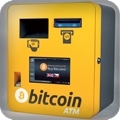Bitcoin 101: What is bitcoin?
 bitcoin is a cryptocurrency, often considered the first decentralised form of digital payment. Users can make transactions and exchange funds using bitcoins, enjoying a number of benefits missing from traditional moneys.
bitcoin is a cryptocurrency, often considered the first decentralised form of digital payment. Users can make transactions and exchange funds using bitcoins, enjoying a number of benefits missing from traditional moneys.
The Beginning: bitcoin was created by one or more people who still remain anonymous, operating under the pseudonym Satoshi Nakamoto. He, she, or they released bitcoin online as a form of open-source software in 2009, and it allows users to perform transactions between each other without having to go through a ‘middle man’.
Nakamoto established the bitcoin network in January of its first year, performing the premier ‘mining’ exercise, the process through which bitcoins are generated for users (more below). Since then, bitcoin has gradually established itself as a popular payment system ideally-suited to the demands of internet-users.
How Does bitcoin Work?
bitcoin can be used in the same way as any other currency (such as GBP, USD etc.) to make payments, to invest, or to send / receive funds from others. However, whereas anyone making monetary transactions online will usually need a bank account, credit cards, an account with a payment gateway, or similar, bitcoin entitles anyone with an email address to establish their own bitcoin wallet.
They will have the freedom to send or receive funds via their smartphone or tablet and a connection to the internet.
Users can generate their own bitcoins by mining them, which basically involves a brief puzzle-solving process: recent transactions are put together to form complex blocks, and the first user to solve said puzzle will add a subsequent block to the chain (hence ‘blockchain’) and reap the rewards – namely, the bitcoins just released as well as any charges linked to the transactions.
bitcoin is safe, fast, and secure to use, and incurs lower costs. How can it be cheaper than traditional financial systems?
Because there are no intermediaries taking their cut. There are no banks or governing bodies controlling bitcoins – it’s a versatile, convenient solution for the digital age. Any and all bitcoin transactions are verified using network nodes, while every single one is noted in a blockchain (a ledger publicly available).
bitcoin is without borders, too: you can send or receive money from almost anywhere in the world, without the same delays or excessive charges that may be forced upon you otherwise. On top of this, bitcoin functions in the same way that gold does – you can invest in it as you would a precious metal or commodity, in the hopes that it will build greater value in years to come.
For example, the number of bitcoin investments made in Cyprus spiked during the Cypriot financial worries of 2012 – 3, with civilians trying to store money in a safer manner; there were real fears that individuals’ personal savings might be confiscated or taxed by the government.
How can I use bitcoin?
The first question when bitcoin is mentioned it the areas that it can be used. Apart from being a valuable storage of wealth it can be used in many fields.
 More than 100,000 merchants in the online marketplace currently accept bitcoin as a form of payment, including a number of global brands you might not expect. Names as well-known and respected as Microsoft, Expedia, Overstock, and many more accommodate bitcoins, while local companies accept it when dealing with buyers in their area.
More than 100,000 merchants in the online marketplace currently accept bitcoin as a form of payment, including a number of global brands you might not expect. Names as well-known and respected as Microsoft, Expedia, Overstock, and many more accommodate bitcoins, while local companies accept it when dealing with buyers in their area.
coinmap.org was set up to help make it easier for users like yourself to identify which establishments in your town or city are happy to trade with bitcoin. This will only welcome more and more businesses as bitcoin becomes bigger and more trusted. Many betting websites and online casinos accept payment through bitcoin now too.
 Feeling charitable? You can use bitcoins to donate to various non-profit groups too, including The Wikimedia Foundation, Human Rights Foundation, LibreOffice, and more. Unsurprisingly, many of those accepting bitcoin donations to further their cause operate within the digital arts or activism, working to decentralise power and share information.
Feeling charitable? You can use bitcoins to donate to various non-profit groups too, including The Wikimedia Foundation, Human Rights Foundation, LibreOffice, and more. Unsurprisingly, many of those accepting bitcoin donations to further their cause operate within the digital arts or activism, working to decentralise power and share information.
Users can send money via bitcoin as a way to tip people working online, such as those uploading content for others to enjoy. Said individuals tend to post their QR codes or bitcoin addresses, inviting those who appreciate their effort to support them; this may be a piece of art, an article or a story.
 bitcoin’s widespread accessibility means users can make payments while abroad, possibly avoiding expensive transaction charges imposed by other financial services (as anyone who has used an ATM or credit card in another country may be pleased to hear).
bitcoin’s widespread accessibility means users can make payments while abroad, possibly avoiding expensive transaction charges imposed by other financial services (as anyone who has used an ATM or credit card in another country may be pleased to hear).
Some of the most bitcoin-friendly destinations include Estonia, the USA, Sweden, Denmark, Finland, and South Korea. In Amsterdam, for example, a bitcoin Embassy has been established in the city’s heart, while bitcoin ATM’s are a growing trend. The more technologically-innovative a country is (such as the USA and South Korea), the higher the chances they will accommodate bitcoin payments for a range of services. Other countries known for their more forward-thinking cultures and values tend to be welcoming of bitcoin too.
The Benefits of bitcoin
bitcoin offers a number of benefits, enhancing users’ financial flexibility, security, and more in the digital realm.
 With bitcoin, you can make payments to many countries around the world without needing to consider bank holidays, time zones, opening / closing times of banks, or an intermediary body getting involved.
With bitcoin, you can make payments to many countries around the world without needing to consider bank holidays, time zones, opening / closing times of banks, or an intermediary body getting involved.
The bitcoin network is not governed or overseen by a central body, which ensures more flexibility.
 Perhaps the biggest, most intriguing reason to embrace bitcoin as an online payment method – anonymity. Your personal information is never divulged for people to see, and you can complete transactions using only your bitcoin number rather than your name, address, or other private details. This protects your money against fraud, and your bitcoins can be encrypted / backed up to reinforce its safety. While anyone can see which transactions have been performed on the blockchain, your personal data is kept hidden.
Perhaps the biggest, most intriguing reason to embrace bitcoin as an online payment method – anonymity. Your personal information is never divulged for people to see, and you can complete transactions using only your bitcoin number rather than your name, address, or other private details. This protects your money against fraud, and your bitcoins can be encrypted / backed up to reinforce its safety. While anyone can see which transactions have been performed on the blockchain, your personal data is kept hidden.
 There are little or no charges for making bitcoin payments as yet, though some users may choose to add fees to encourage faster processing. Digital currency exchanges will allow merchants to change bitcoins into ‘real money’, at generally lower rates than payment platforms like PayPal and credit card companies. You can learn more about bitcoin, its advantages, its functions, and more elsewhere on our site.
There are little or no charges for making bitcoin payments as yet, though some users may choose to add fees to encourage faster processing. Digital currency exchanges will allow merchants to change bitcoins into ‘real money’, at generally lower rates than payment platforms like PayPal and credit card companies. You can learn more about bitcoin, its advantages, its functions, and more elsewhere on our site.
